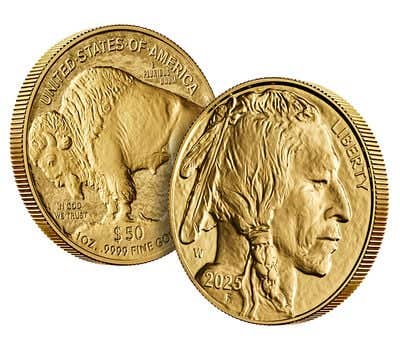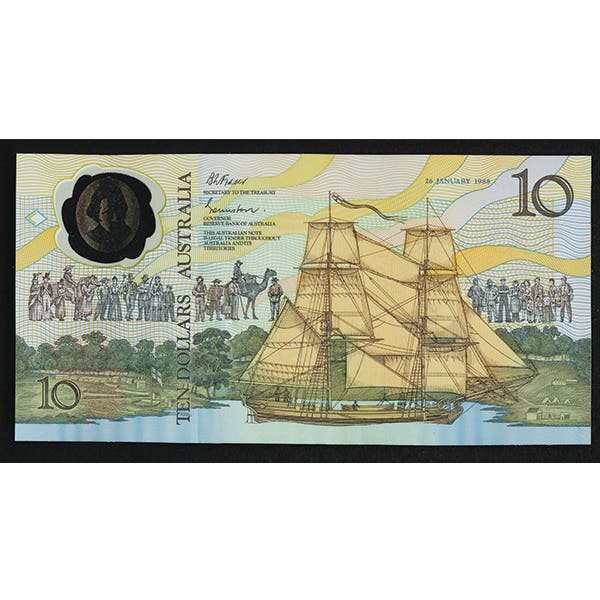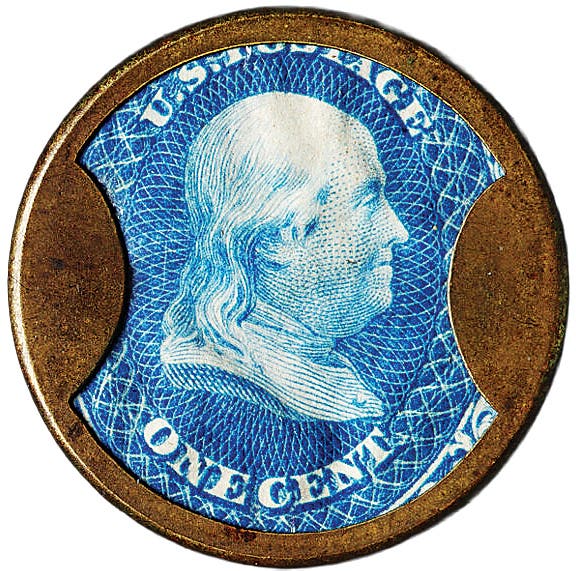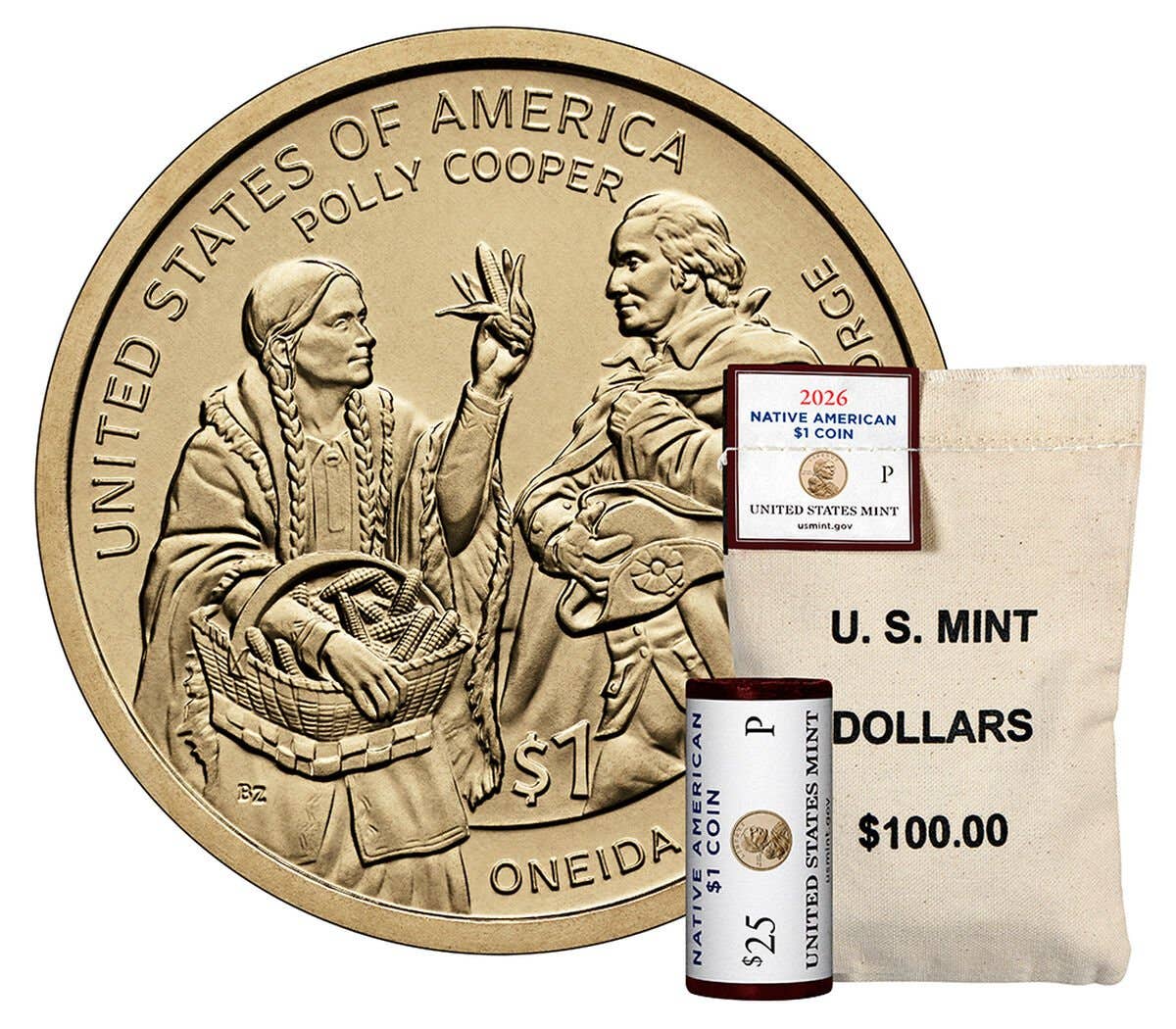Gold preserves integrity of money
Gold is money. Gold was money and will be money because gold helps ensure honesty in economic transactions.
This article was originally printed in the latest issue of Numismatic News.
>> Subscribe today!
Gold is money. Gold was money and will be money because gold helps ensure honesty in economic transactions.
I’m addressing V. Kurt Bellman’s (VKB) commentary of April 27 to dispute some information he presents as fact and his rationale for excluding all but degreed economists from the discussion of economic matters.
VKB states as “Fact 2” that, “Gold is not money, nor is silver.” Money is defined as a medium of exchange and gold and silver have been used as money for more than 2,000 years.
From 1792 until 1971 the U.S. dollar was defined as an amount of gold. Gold coins were in circulation from Colonial days until 1933. Gold is a commodity money. So too in Colonial times were silver, copper, wampum, tobacco and pelts.
Money as a medium of exchange can be said to perform functions described as, 1. an accounting unit, 2. standard of value and 3. store of value. Relatively well-managed fiat monies such as the U.S. dollar work well for the first two functions, but fail miserably as a store of value. Gold and silver have served well as a store of value since the U.S. dollar was severed from gold in 1971. Since that time the U.S. dollar has lost more than 80 percent of its purchasing power in terms of food, shelter, clothing and energy, according to the U.S. Bureau of Labor Statistics. Gold and silver have preserved that purchasing power.
When VKB states that one should “leave economics to the economists” and that “my degree is in economics,” he is not promoting his arguments on their merits, but credentialism. Neither is it instructive or convincing to label a differing view with derogatory terms such as “fetish.”
VKB doesn’t acknowledge that arguments continue to be made for the desirability of commodity-based money. In the 1970s I attended the University of Illinois at Chicago and kept a text entitled, Money and Economic Activity, Readings in Money and Banking, edited by Lawrence Ritter, Chairman, Dept. of Finance, New York University under the publisher’s general editorship of Marshall D. Ketchum of the University of Chicago, copyright 1967. In Chapter 2, “Money and Gold” and Chapter 6, the pros and cons of gold-backed money were discussed. In the Nov. 30, 2009 Barron’s, Economic Editor Gene Epstein wrote, “Briefly I said the key to a (relatively) painless transition was to keep the money supply at its current level, while switching to a commodity money consisting of gold, and probably silver and copper as well.”
In the 1970s, the U.S. government conducted a war on gold. From Jan. 6, 1975, through 1979, the U.S. sold 17,053,900 ounces of gold at 21 auctions.1 A goal was to prevent the use of gold as a competitor to the U.S. fiat money by driving down the price. Gold won.
Fiat currencies are again under severe pressure not seen since the 1970s. Defenders of the world’s money magicians who are manipulating fiat currencies continue to pop up, telling us to believe, although their failure is there for all to see.
VKB asks, “If the people holding and advertising bullion to you now were so certain that gold can only go up from here, why would they be selling it to you instead of holding onto it themselves to earn nearly certain profits?” It is not inherently contradictory that someone selling an investment can actually believe it will go up in value. On the contrary, by selling a readily available item, such as gold and silver, a person can earn more money and invest more in the item they are selling.
Are we to believe that VKB with his degree in economics does not understand this? Perhaps it is more likely that VKB is employing a simple rhetorical trick, assuming that it is only simple-minded people who believe in gold-backed money and buy gold and silver to protect themselves from a continuously debased money.
A productive people are essential to a prosperous nation. One way to ensure that is to use commodity money, preferably gold. Gold helps to preserve liberty through the strengthening of property rights by preserving the integrity of money. Without property rights, that is the right to keep the fruit of one’s labor, there is no liberty. Gold can be considered a neutral economic arbiter, preventing money manipulation, which is easy with fiat money and allows politicians to reward their supporters through the inflations of the money supply.
Gold and Liberty, by Richard Salsman.
Donald Markay is a hobbyist from Fargo, N.D.
To have your opinion considered for Viewpoint, write to David C. Harper, Editor, Numismatic News, 700 E. State St., Iola, WI 54990. Send e-mail to david.harper@fwmedia.com.
Profitable Coin Collecting
Identify profit potential in rare coins, while increasing your appreciation for coin collecting.
More Coin Collecting Resources:
• Subscribe to our Coin Price Guide, buy Coin Books & Coin Folders and join the NumisMaster VIP Program









